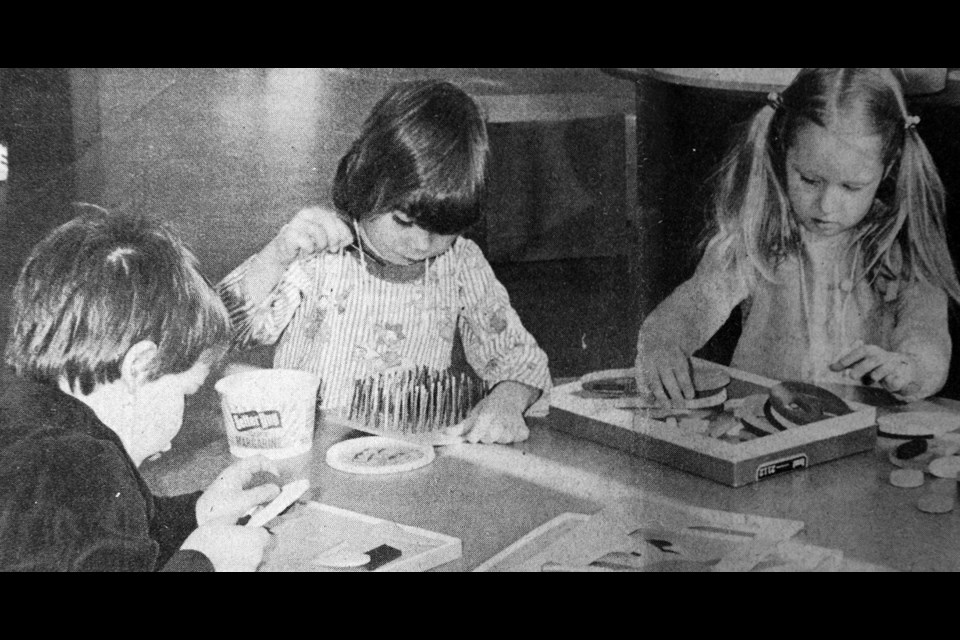HUMBOLDT — “Children are like flowers. They need to be nurtured along if they are going to bloom.”
To help their children blossom, fertilizer in the form of creative experience is being applied by a group of Humboldt parents who have formed the Humboldt Co-operative Playschool Association.
As a result, 35 pre-school youngsters learn their way through a maze of childhood delights such as sand boxes, water tables, finger paints, story and dress-up corners, and more.
The theme underlining their playschool located in the former Humboldt Post Office is described by school president Kay Williams as “learning through creative play.”
To help their children learn through play the group was "very fortunate," Williams said, to find teacher Cheryl Archibald. Archibald, who has her BEd degree and is experienced in child education, stressed that the play classes are not "formally structured. The children are free to play, with very little interference," she said.
Florence Graham, a Saskatoon educator with 19 years’ experience and who is a play school organizer and advisor, recently spoke to the Humboldt group. She described children coming out of the play group situations as “more secure in themselves. And they know how to express themselves better than children who have lacked contact with their peers and other adults.”
Because children who have attended playschools have learned to function with a large group of other children and parents other than their own, they are often more secure around strangers. She said that "at our school in Saskatoon we have had children who have lagged behind. However, after a year in the pre-school situation they often reach normal levels of verbalizing and motor control." Children at the Humboldt school also learn to choose between the wide variety of learning experiences offered.
Providing a wide variety of learning situation is important, Graham said, because a child's intelligence is formed by a large degree by the time they are four years old.
This variety also lets the child choose what he or she really wants to play at on that particular day.
"By talking with and offering a three- or four-year-old a variety of experiences we stimulate their learning ability."
Parents in the pre-school co-operative must assist Archibald at least twice a month. Posters lining the walls of the class-room extol assisting parents to use positive reinforcement when instructing the toddlers.
“We never yell at a child or demand that he stop hitting or throwing sand. Instead, the child is asked not to and they are told why they should or should not do something,” Williams said.
As an alternative to lashing out at other children the pre-schooler quickly adopts the logic of positive reinforcement and can be overheard telling a pesky peer in adult tones to “stop that. You're hurting me.” or, “could I please borrow your shovel.”
Because parents get to see their children playing with a large number of other children, they also learn from the playschool experience.
“They may realize for the first time that their child is behaving in a normal way. They learn that most four-year-olds throw temper tantrums, or that one day they will listen longer than they will as another day."
By experiencing the response of children to positive reinforcement, it also helps parents learn the value of that instructing technique. While stressing that the playschool was not a place where parents can "dump" their children, Graham said it is important for parents to get away from their children on occasions.
She added that it is also important for children to meet new peers and new adults.
Currently the Humboldt centre is being funded directly by the co-operative's members’ parents at the rate of $15 or $20 a month ($52 to $70 in 2019 dollars) depending on the age of the child, local service groups and fund-raising programs.
While the centre will remain in the old post office for another two months, Williams said she hopes to find a permanent home 'for the school by September. At that time, she predicted that there would be 80 students enrolled in the centre.
In addition, this fall the group hopes to regularly bring in specialists in parenting to speak to their monthly meetings, she said.



